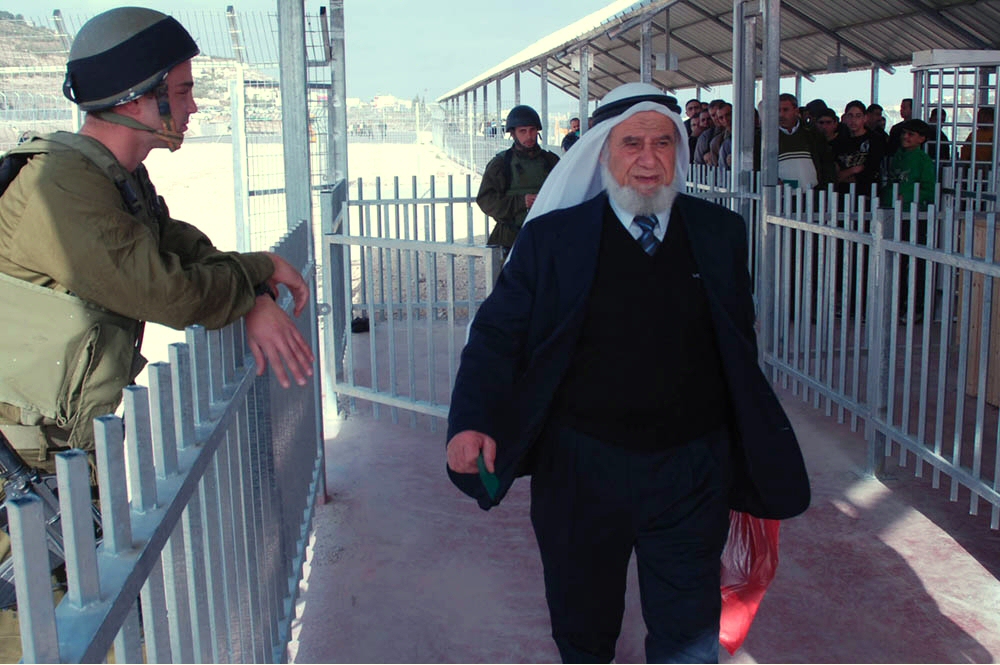Australia/Israel Review
IDF facing prolonged escalation in West Bank
Aug 30, 2023 | Yaakov Lappin

The murderous terrorist attack on Route 60 in Hebron on August 21, in which an Israeli woman was shot dead and a man seriously injured, was just the latest indication of the sad fact that Israel is in the middle of a prolonged security escalation in the West Bank – with no end in sight.
The incident came two days after an Israeli father and son were shot dead in Huwara, an attack that may have helped “inspire” the Hebron shooting.
So far in 2023, 34 people (33 Israelis and an Italian tourist) have been killed by Palestinian terrorism, and almost 200 shooting attacks have occurred in the West Bank. In the whole of 2022, terrorists killed 31 people and there were 281 shooting attacks.
These figures attest to the scope of the escalation. The Israel Defence Forces and Israel Security Agency (Shin Bet) are engaged in a non-stop effort to combat terrorism in the area, sending in backup forces and holding assessments daily all the way up to the level of the General Staff, according to an Israeli military source.
Over 20 IDF battalions are active in the West Bank, including the Givati Reconnaissance Battalion, which was dispatched on Aug. 19 after the Huwara shootings.
In the end, however, no matter how many backup forces it sends, the IDF still cannot be everywhere at once or pre-empt every attack.
There are many roads in the West Bank that provide easy targets for terrorists looking to fire on Israeli vehicles, including Route 60 and the Huwara “corridor,” which Israelis in the area must use to move between north and south – although the decision by the murdered father and son on Aug. 19 to visit Huwara for several hours to have their car serviced was extremely dangerous.
Other signs of the escalation can be found in the fact that, whereas in the past a single IDF company was sufficient to hold the Huwara area, now an entire battalion is needed, according to the Israeli military source.
In July, work reportedly began to construct a Huwara bypass road, which if completed will significantly ease the pressure on Israeli security forces.
While the current situation is not a full-blown intifada, the figures indicate that it is indeed a prolonged escalation, and despite the massive resources and efforts that the IDF and Shin Bet are pouring into the area, the terrorists’ motivation remains high.
Furthermore, their ability to carry out attacks is enhanced by the enormous quantities of firearms flooding the area.
The guns are being smuggled in from Jordan, produced in Palestinian workshops and stolen from IDF bases in southern Israel. On Aug. 1, Israel announced that it would build a new security barrier on the border with Jordan, in an attempt to staunch the flow.
The July 5-6 Jenin operation launched by the IDF saw hundreds of weapons seized by security forces, and Israel will continue to launch such operations of various scales, but it will not be enough.
According to the military source, for every successful terrorist attack, on average some ten are foiled by Israel, providing a glimpse into the true extent of the threat.
The instability of the Palestinian Authority, the ability of Hamas to exploit it, and friction between Palestinians and Israelis are all contributing to the strain on the IDF’s efforts.
Israel meanwhile is continuing its policy of allowing some 150,000 Palestinians who have passed security screening to work in Israel, as part of its targeted approach that seeks to differentiate between terrorists and civilians, and to decrease the ability of Hamas to use its murderous incitement to recruit even more attackers.
At the same time, the IDF is under pressure from Israeli civilians to show better results and to bring down the number of attacks.
Israel’s round-the-clock counter-terrorism effort is up against a network of hostile actors, involving local gunmen supported by Hamas, Palestinian Islamic Jihad and Iran, with the latter three pouring cash and incitement as fuel onto the fire.
Iran is implementing a decision taken around a year ago to transfer its conflict with Israel into the West Bank and onto the streets of Israel, following Teheran’s failure to successfully respond to a series of blasts and incidents on Iranian territory that it blamed on Israel.
As such, Iran is strengthening its support for its proxy Hezbollah in Lebanon, while in the West Bank, it is working to inject more cash for weapons production and for destabilising the arena.
Israel’s fight against terrorism in the area is set to be a long-term affair.
Yaakov Lappin is an Israel-based military affairs correspondent and analyst. He is the in-house analyst at the Miryam Institute, a research associate at the Alma Research and Education Centre, and a research associate at the Begin-Sadat Center for Strategic Studies at Bar-Ilan University. © Jewish News Syndicate (JNS.org), reprinted by permission, all rights reserved.
Tags: IDF, Israel, Palestinians, Terrorism, West Bank






